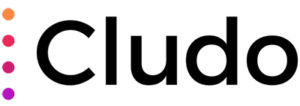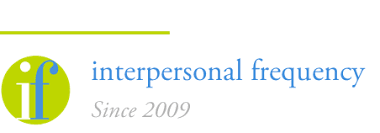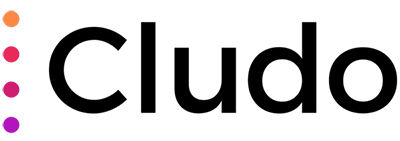
National Conference
September 8, 2022
Registration Desk – Grand Ballroom Foyer
7:30 am to 4 pm
Thursday, September 8
Breakfast
Salon A/B, 8 - 9 am
Keynote Speaker
Colleen Harris
Making the Transition to GA4 and Google Data Studio
Salon A/B, 9:15 am to 10:45 am
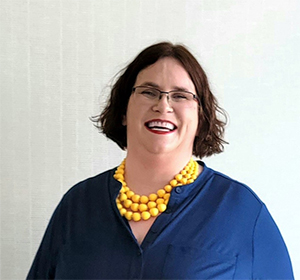
All times are Central Time.
How Accessible Is My Website?
11 am – Noon
Room: Chicot
Web accessibility is an increasingly frequent topic of questions, requirements, and sometimes lawsuits. This session will help participants get a grasp on this abstract-sounding concept and arm them with techniques and strategies to self-assess web accessibility.
Key Takeaways:
- Participants will understand what ‘web accessibility’ means, how to assess it, and where to go from there.
Session Recorded
Designing with residents: Lessons learned from the Google.org Fellowship program
11 am – Noon
Room: Grampas
Designing and developing digital services that are accessible and easy to use is a difficult but essential task for government teams. Over the last several years, the Google.org Fellowship program has embedded pro bono teams of researchers, designers, and technologists within civic entities to offer full-time support in addressing their greatest challenges. This initiative has enabled government program offices and IT teams to experiment with new approaches to digital service development that deeply involve residents in every step of the process. We reflect on the challenges and successes from a variety of recent projects related to improving access to government services and benefits. We share lessons learned around engaging with residents, managing public sector partnerships, adopting new digital service processes within government, working cross-departmentally, and collaborative software development.
Key Takeaways:
- There are a variety of ways to engage residents in the design and development of digital services, and teams of all types can readily adopt these approaches.
- Technical best practices are important to the development and sustainability of a project, but are not sufficient on their own.
- Everyone benefits when government teams work cross-functionally to deliver services, though approaches will differ based on each project’s needs and circumstances.
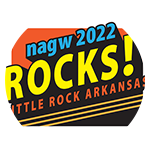
Speaker:
Rasmi Elasmar

Speaker:
Aaron Ogle
Let's add fun and creativity to your materials
11 am – Noon
Room: Ouachita
Speaker joining via ZOOM
In this workshop, you will learn how to use Adobe Creative Cloud Express to create attention-grabbing materials. You will learn how to access free stock images, use Adobe Colors, Fonts, Libraries, and Creative Cloud Express tools to layout and add interest to your products.
Key Takeaways:
Learn how to use the free tool Adobe Creative Cloud Express
Learn how to create using the phone or desktop
Lunch
Salon A/B, Noon - 1pm
Effective Social Media Strategies During Times of Crisis
1:15 pm to 2:15 pm
Room: Chicot
In this tumultuous age of natural disasters and health care crises, join Palm Beach County Digital Marketing Manager, Heather Shirm for an insightful training session and discussion on how to effectively manage social media during multiple emergencies.
Learn to simultaneously push traditional preparedness measures while keeping your constituents informed of the progress of an ongoing pandemic and new safety protocols in place to stop the spread and address the needs of your most vulnerable populations
Key Takeaways:
- Further operationalize your emergency management program’s social media accounts before, during, and after hurricanes to enhance your community’s resiliency.
- Build a strategy to increase your audience during blue skies with effective preparedness information, so that you are a key source of information during grey skies.
- Use social media to directly communicate with residents during an emergency to answer questions and share the latest disaster resources that are available.
Session Recorded
To self-host, or not to self-host...with apologies to William Shakespeare
1:15 pm to 2:15 pm
Room: Grampas
A comparison of website hosting and content management options for modern governments. My capstone project for my CGDSP certification in Nov. 2021 analyzed some of the leading options for the hosting, management and overall production of government websites and attempted to discern the pros and cons of these various options. This session would be taking these findings (for which I was highly lauded by my CGDSP class and instructors) and present them to a larger audience, which, from my understanding, has always been the intended goal of these types of research projects in the CGDSP program. The goal of this session is to inform and educate other technology and communications professionals about these myriad options, and hopefully, to assist them in instances where they are faced with choices about content management systems, and the form their government website and its infrastructure should take. This session will attempt to show that there truly is no “one-size fits all” or “correct” answer. Websites, especially government websites, have so many variables and different conditions to account for, that to say one way is truly better than another would be sheer folly. This session will instead simply try to lay out various options and compare and contrast those options on several key elements, such as cost, technical knowledge considerations, ease of use, security and overall output. The session will structure these comparisons within the following topic areas and will incorporate real-world examples (including from NAGW professionals) into its discussions: 1. The question of hosting: Self-hosting vs. Third-party hosting platforms vs. Total third-party solution: The government-focused website providers. 2. The question of cost: A comparison of the costs associated with these three types of hosting, based on data provided by select hosting platforms and surveys of multiple government web managers in jurisdictions of varying sizes across the United States. 3. Conclusion: The most important question: Does it really matter what type of system you use if the front-end product works well for the citizen/customer?
Key Takeaways:
- 1. Pros and Cons: Attendees will get an extensive overview of the true pros and cons of these different types of hosting options, and they can use this information to assess if their current setup is really the best for them.
- Costs: Attendees will see real-world examples of costs from various hosting providers and real-world examples of what other NAGW members and their organizations are paying for their web services. They can, again, use this info to assess whether their current setup is the most cost-effective for them.
- The Most Important Question: Does it really matter what type of system you use if the front-end product works well for the citizen/customer? It’s a question that many of us don’t necessarily want to answer. It’s a question that makes us look at what we’re doing and why, rather than just being comfortable in our own ecosystem. It’s also a question that makes us examine what a government website truly is and should be, and what our role should actually be in making that happen. The answer is YES…and NO. There is a balance that we must strike as we consider our governmental websites. Yes, they must work for us, but more importantly, they must work for the public. And that is why there truly is no right or wrong answer when selecting your website’s hosting platform and infrastructure. The paths all lead to the same goal. We can’t lose sight of that or get bogged down in the technical or the mundane aspects of our jobs. Our roles in relation to our websites must be more than just tech people. We must always remember that we are public servants, and our duty is to provide our citizens with the best possible digital services, no matter what form the back end takes.

Speaker:
Ken Smith
Are you ready for .GOV?
1:15 pm to 2:15 pm
Room: Ouachita
Originally established as the domain for the federal websites, this past year has seen an uptick in interest and movement of local government agencies to the .GOV domain.
The .GOV domain makes it more difficult for malicious actors and scammers to co-opt government websites and assets, and provides the community assurance of the websites validity and site security.
Gregg and Jason represent both a city and county who, in the past year, have embarked on migrating their agency’s domain to the .GOV space.
Key Takeaways:
- Why are Local Government agencies now looking to move to .GOV domains
- What did the adoption/transition process look like for your agency?
- Recommendations for NAGW members interested in making the move to .GOV
Session Break
Tackling Digital Accessibility with a Small Team
2:30 to 3:30 pm
Room: Chicot
Digital accessibility is a huge challenge for local governments, especially those with small digital teams. We’ll take a look at Manatee County’s multi-pronged approach to implement best practices, explore alternatives and increase compliance across our agency. We’re not perfect, we’re not experts, and we don’t have all the answers, but we’re doing a whole lot better than we were before!
Key Takeaways:
Examples of digital alternatives to PDFs and other documents
Ideas for how to educate and increase awareness among staff
Session Recorded
Beyond Pretty to Powerhouse: A Digital City Hall Revolution via Information Architecture
2:30 to 3:30 pm
Room: Grampas
It’s not often someone calls City Hall and says, “your website is really pretty” right? It’s more likely you’ve heard residents reach out to say, “I can’t find what I need online!” Residents expect government services to be responsive to their needs, and today that means online, seamless, accessible, and secure. Having a truly usable site goes well beyond eye-pleasing design to create a fully integrated experience. To move your website beyond pretty and make it a powerhouse, the focus must be on the customer and how efficiently and effectively they can accomplish their goals. Enter Information Architecture (IA), the key to creating a modern Digital City Hall. We’ll explore what IA really is, your role in championing it, and the value of engaging residents to refine it. You’ll leave this session with awareness of how to not only make digital transformation possible, but downright doable!
Key Takeaways:
- Examining and developing an effective Information Architecture to help residents find information, get service, and experience satisfaction.
- Understanding how to gain buy-in to invest in IA and establish yourself as a cross-organizational leader to leverage it consistently.
- Assembling the right tools to support the continual adjustment and evolution of your IA for long-term sustainability and success.

Speaker:
Luke Norris
Securing websites with Let's Encrypt & AcmeDNS
2:30 to 3:30 pm
Room: Ouachita
Come learn how the City of Fayetteville has automated its internal and external SSL certificate, increased the security of its websites, and lowered costs.
Three Key Takeaways:
- An understanding of SSL certificates and Acme DNS.
- The advantages of automating the SSL renewal Process
- How this could be implemented in other government environments.

Speaker:
Marcus Townsend
Snack Break
Grand Ballroom Foyer
3:30 to 4:15 pm
Member Meeting
4:15 to 5:15 pm
Chicot Room
2022 NAGW
PINNACLE
AWARDS
7 PM, Salon A/B
Sponsored by:



